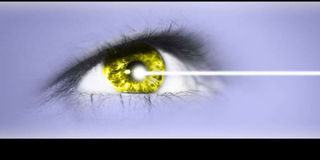Premium
Alarm over high cases of blindness caused by cataracts in Tharaka Nithi

Concern has been raised over high cases of blindness due to cataracts in Tharaka Nithi County.
Cases of blindness caused by cataracts among people aged 50 years and above are on the rise in Tharaka Nithi County with more than 70 patients undergoing surgery every month.
The county’s Medical Services director John Mbogo noted that out of 3000 people with an eye problem in the county, 300 have cataracts.
Cataracts is the clouding of the eye’s natural lens, which lies behind the iris and the pupil.
Dr Mbogo said the county eye medical team conducts surgery for the removal of cataracts in Chuka County Referral Hospital in Chuka/Igambang’ombe constituency and Marimanti Level Four Hospital in Tharaka constituency.
The devolved unit also holds outreach in one hospital in every sub-county per month.
However, Dr Mbogo regretted that some patients with cataracts were avoiding surgery fearing that they might lose sight completely.
“Out of an average of 300 people that we find to have eye cataracts after examination, 100 of them do not turn up to the hospital for an operation,” said Dr Mbogo.
1500 cataracts
He said with the county having a population of about 500,000 people, they target to treat 1500 cataract patients every year.
World Health Organisation (WHO) figures shows out of one million people in developing countries like Kenya, 3000 suffer from eye cataracts compared to 2000 people out of one million in developed countries.
The medic appealed to those with eye problems to seek treatment and not to fear operation noting that almost all those who have undergone surgery for cataracts have improved sight.
“The operation is a minor one and patients go home the same day,” he said.
He noted that Community Health Volunteers and public health officers are helping identify locals with eye problems in the villages and advise them to go for screening.
Dr Mbogo said there are also some children born with congenital cataracts, which is a condition where the lens of the eye is cloudy instead of clear at birth, making it hard to see.
Other causes of blindness include glaucoma, age-related degeneration, diabetes and trachoma.





